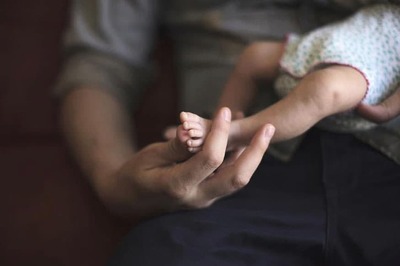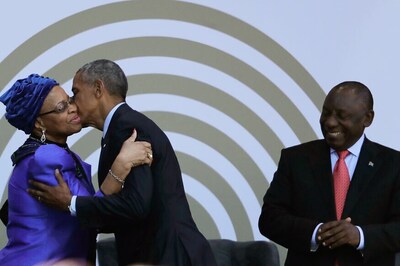
views
Oslo: Adrian Pracon was determined to return to the island where he nearly died. A month ago, terrified and panicked, the 21-year-old played dead while Norwegian killer Ander Behring Breivik stood over his body, the gun so close he could feel the warmth of the barrel.
Pracon is one of about 600 survivors of the massacre at Utoeya island, where Breivik killed 69 people, most of them youngsters at a Labour Party youth camp.
On Saturday they returned to the island for the first time, a day before a national day of remembrance in Norway.
"I went back to the place where I got shot," Pracon told Reuters. "The first thing I did was to sit down, quietly, and I cried for a long time. I cried for the people I saw killed there. I laid flowers and lit candles for them."
Pracon came face to face with the killer several times on July 22. During one encounter, he saw him coming out of the woods and shooting at people.
"He was shouting that he was going to kill us all," said Pracon. "He turned towards me. You feel trapped, like you have no place to go or that there is nothing you can do. You just hope that he is going to shoot in the head, in the heart to make it go fast. All I could say was: 'Don't shoot'."
"I remember him pointing the machine gun at me for quite a long time before he took it down, turned and walked away."
Later, he lay still on the ground, pretending to be dead. "I was shaking terribly, I was also breathing very fast but it all stopped at that moment because the body understands that it must be still," he said.
"Suddenly I could hear him place his boots right in front of my face. I could feel the warmth of the gun barrel he was pointing at me. I thought: 'Now it is over. Now he's got me'."
The killer aimed at Pracon's head and fired a shot. He missed and the bullet entered the left shoulder. "I thought, Now I am dead", said Pracon.
Returning to the massacre site should help survivors come to terms with the trauma they experienced, said Lars Weisaeth, a professor of disaster psychiatry at the University of Oslo.
"If you have survived a harrowing experience, you do not have a narrative, a continuous story to tell. What you remember is a series of fragmented, extremely strong impressions -- visual and acoustic," he told Reuters.
"(Going back will) link this together so that they can have a very exact picture of the physical circumstances."
Under an overcast sky the survivors walked slowly and quietly around Utoeya, hugging each other and laying flowers and candles for their departed friends, said Pracon. They visited the places where they hid or where they saw their friends die.
Relatives of those who were killed also came to mourn and hear from police where and how their loved ones died.
Around 250 people, including Red Cross volunteers, health personnel, police and psychiatrists were on hand to help the survivors through the day.
Later they came together for a minute of silence. Prime Minister Jens Stoltenberg told the crowd, made up of members of AUF, the Labour Party youth wing, that they would reclaim the island for next year's summer camp, promising that he would spend one night on the island in his sleeping bag.
The survivors burst into song and applause, which could be heard from the other side of the lake.
"We sang 'we are all members of AUF' ... People were crying and hugging each other. Everything happened spontaneously," said Pracon. "It was beautiful."
"I feel an unbreakable bond towards my friends. We have been through hell together. We have pushed ourselves to survive. It is impossible to say that we are not strong together."
Later, about a hundred boats slowly circled Tyrifjorden lake, sailed by locals who wanted to pay their respects. Many had rescued youngsters from the water during the massacre.
"As I came off the island, I felt good," said Pracon. "I feel we are stepping closer towards taking the island back (from Breivik)."
He said he planned to return for next year's summer camp and said people were talking about preparations for it. "Coming here will help me with the process of coming to terms with what happened... I can see the big picture after being there," he said.
"After all this pain and misery, it was also good to see joy. Now I have a hope for the future. It will get better."




















Comments
0 comment